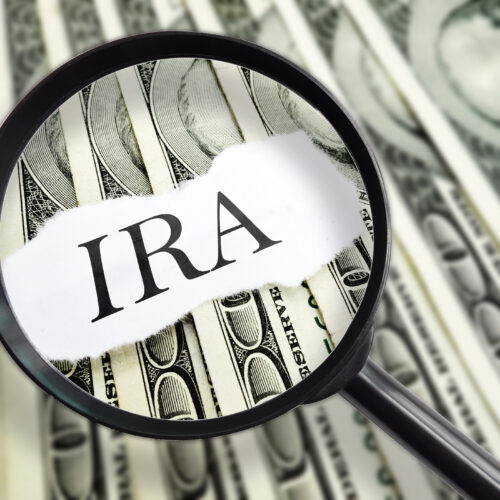When investing towards retirement with inflation in mind, having a financial plan is critical for success. Overlooking economic inflation can greatly impact one’s goals and returns. There are several measures individuals can take to make sure that rising prices (current and expected) do not jeopardize their nest egg.
So, let’s go over 6 tactics one can use to protect their retirement savings in the following sections.
Save and invest
The first, and most important thing one can do is start; start investing in a retirement account. The best place to start is with a company-sponsored retirement account, like a 401(k) plan. Don’t know what a 401(k) is? Learn more about retirement accounts here.
Typically, money that is invested over time grows more than money that is saved in a regular savings account. This is because retirement accounts are invested in the market and can capitalize on market movements. Doing so doesn’t always guarantee net gains, so it’s good to get advice from your financial advisor. Alternatively, savings accounts guarantee continual growth but don’t always keep up with inflation.
When it comes to inflation, history reveals that the S&P 500 tends to outperform inflation, with an average return of around 7%.
If you’re concerned about running out of money because of inflation, don’t feel obligated to overcompensate. Investing in high-risk real estate or cutting-edge technology will not help beat ever-increasing inflation. Investing is more about consistency, rather than trying to hit a home run and beat the market.
Calculate your estimated retirement income
So, how much money does one need in retirement? Online calculators can help estimate one’s net projected retirement income. These calculators consider several factors such as the expected date of retirement and estimated monthly costs. Some calculators also take inflation into account.
Also, consider that spending and income can change before retirement – lifestyle inflation, as well as conventional inflation, might influence one’s budget. So, it’s good to check in on your progress every year to determine whether you’re still on pace to save enough for the future.
Keep a watch on spending before and during retirement
Keeping a strict eye on spending before and during retirement may seem self-evident, but it’s still worth mentioning. It’s critical to combine such attentiveness with an active savings strategy. Paying off debt and avoiding new borrowing go hand in hand too.
Spending habits change as each of us approaches retirement. Those in their late 60’s may initially spend more on vacations, but that changes depending on needs. Inflation may have a greater impact on some areas of spending than others, so retirees who are willing to adjust on the go should do so.
Maximize Social Security benefits
Maximize Social Security payments by taking advantage of delayed retirement credits. That means deferring rewards as long as possible – preferably until 70 years old. When a retiree finally starts receiving checks, their monthly payments will be larger, and they will be supplemented by yearly cost-of-living percentage adjustments.
Even though much has been written about the Social Security trust fund’s probable depletion, it’s still predicted to cover around 76% of planned benefits —and that’s without any legislative adjustments. To get the most out of these benefits, it can pay off to wait as long as possible before accepting them.
Think about the cost of healthcare
Healthcare expenses are important to consider while investing towards retirement since the older we become, the more money we tend to spend on it. With a little forethought, it’s possible to minimize the impact of health care on one’s retirement savings by doing the following:
- If you have an HSA, max it out: While a Health Savings Account isn’t exactly an inflation hedge, it might help with putting money aside for certain healthcare expenses in retirement.
- Keep up with Medicare: Medicare is a government health insurance program that people may join after reaching 65. You may use it with other types of health insurance to assist pay medical expenses.
- Long before retiring, look into long-term care insurance (or alternatives): This technique may not directly address inflation, but it may help stretch one’s dollars.
Get rid of debt
Mortgages, credit card debt and even student loans are still common among retirees. As inflation rises, this debt can hold someone back. Any Inflation might be harmful if the debt is adjustable-rate debt, such as a mortgage that isn’t fixed. For anybody concerned about late-life inflation, paying off debt should be a goal.
Conclusion
When investing towards retirement with inflation in mind, planning is key. Although inflation is high, if an individual is investing, lowering costs where they can, and implementing a holistic approach to their financial planning, they’re ahead of MANY others. Wondering what a holistic approach is? Click here to learn more.






